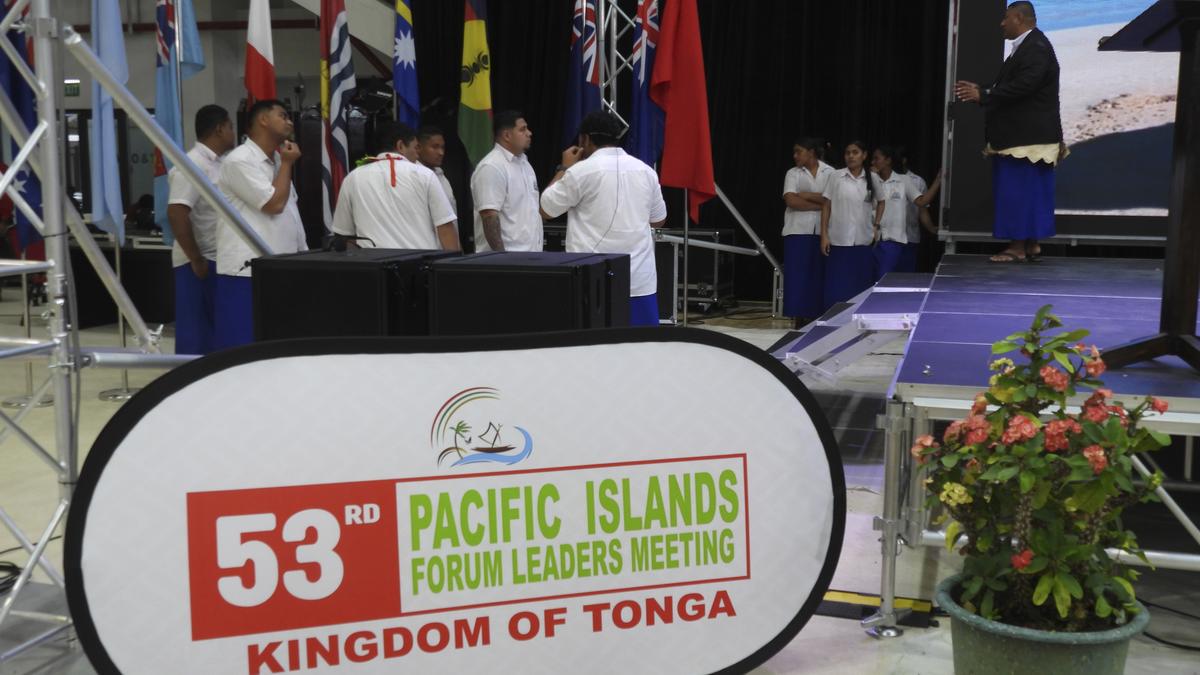The Pacific Island Forum, a regional grouping of island nations in Oceania, has gained significant prominence in recent years as major powers increasingly seek to exert influence in the strategically important region. This article will explore the key issues and dynamics shaping the Forum, including its growing role in addressing regional challenges like climate change and security, the competition between major powers, and the complex question of Taiwan’s participation.
The Pacific Island Forum: A Powerful Platform for Regional Cooperation
Established in 1971, the Pacific Island Forum comprises 18 member states, including Australia, New Zealand, and smaller island nations. The Forum prioritizes a “resilient Pacific region of peace, harmony, security, social inclusion and prosperity.” Its “Pacific way” approach emphasizes consensus-building and prioritizes relationships between member states, fostering a strong sense of shared identity as the “Blue Pacific Family.”
Addressing Critical Challenges
The Forum is particularly relevant in addressing shared challenges faced by its members, most notably climate change and rising sea levels. The region’s vulnerability to environmental impacts is a central focus, underscored by UN chief Antonio Guterres’s call to address water quality degradation and create a climate fund. The Forum’s efforts extend to promoting sustainable development, economic growth, and regional security.
Growing Geopolitical Significance and the Rise of Major Powers
The Pacific Island Forum has drawn significant attention from global powers like the United States and China, who see the region as strategically important. This heightened interest is fueled by the region’s abundance of natural resources and its geopolitical location in the Indo-Pacific.
China’s Expanding Presence
China’s active engagement in the region has sparked a shift in dynamics. Its offers of aid and military support have been met with both opportunity and apprehension by Forum members. China’s security pact with Solomon Islands in 2022 and its pressure to exclude Taiwan from the Forum highlight the country’s growing influence.
The United States Counter-Strategy
In response, the United States has intensified its engagement in the region. The U.S. hosted a White House summit for Pacific leaders in 2022 and has increased its security cooperation with Forum members.
A Changing Security Landscape
Historically, Australia and New Zealand were the key security partners in the Pacific. However, the emergence of China as a significant player has altered the security dynamics. The Forum’s focus on regional security is increasingly shaped by this evolving power competition.
The Contentious Issue of Taiwan’s Participation
Taiwan’s recognition as a development partner within the Forum has been a source of friction. China, along with its allies, including Solomon Islands, have actively sought to remove Taiwan’s involvement, viewing it as part of China. While the Forum initially affirmed a 1992 agreement allowing Taiwan’s participation, it faced significant pressure from China, ultimately leading to the removal of the relevant section from the final declaration.
The New Caledonia Crisis and the Forum’s Role
The Forum has also engaged in addressing the ongoing unrest in the French territory of New Caledonia. The Forum plans to host a “talanoa” (dialogue) on the issue later this year. The conflict stems from the Kanak people’s longstanding quest for independence from France and tensions surrounding recent attempts by the French government to amend its Constitution related to voting rights in New Caledonia.
Looking Ahead: Navigating a Multipolar Pacific
The Pacific Island Forum faces a complex geopolitical landscape. While navigating the competing interests of major powers, the Forum seeks to retain its autonomy and focus on its core goals: promoting regional peace, security, and sustainability.
Future Challenges
The Forum’s challenges lie in finding the balance between engaging with major powers and maintaining its independent voice. It must continue to prioritize the interests and concerns of its member states while addressing the growing challenges of climate change and a shifting security environment.
The Way Forward
The Forum’s success depends on its ability to harness its regional influence, foster cooperation, and build resilience among its members. Through proactive dialogue, strategic partnerships, and robust initiatives, the Forum can solidify its role as a vital platform for regional cooperation in the Pacific.
Take Away Points
- The Pacific Island Forum has become a critical platform for regional cooperation, navigating increasingly complex geopolitical dynamics in the Pacific.
- Climate change and sea-level rise are major priorities, impacting the lives and livelihoods of island communities.
- The emergence of China as a powerful force in the Pacific has spurred heightened competition from the United States and other major powers.
- The Forum faces challenges in balancing its role as a platform for dialogue with major powers while retaining its independent voice and advancing the interests of its member states.
- Maintaining a resilient and sustainable Pacific region depends on strong regional cooperation and proactive engagement by all members of the “Blue Pacific Family.”




